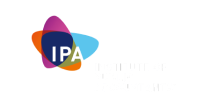You can cut your own hair but you’ll get a better result if you see a professional.
It’s the same with completing your tax return. If you see a qualified registered tax agent, you can be confident you’re meeting your tax obligations and getting the maximum refund you’re entitled to.
Most tax agents don’t charge very much for a simple tax return. Most small business owners will see a tax agent throughout the year to help them manage their tax affairs. The cost of going to a tax agent is also tax-deductible.
It’s well worth the investment because tax can be complicated.
We find that the most common answer to questions on tax is, “It depends”, which reflects the detailed rules of the Australian tax system. Tax agents navigate this maze on your behalf, taking the worry out of tax time.
Using a tax agent provides peace of mind, access to professional tax advice, extended time to lodge your return and makes it easier to do your taxes. They can also advise you on the tax consequences of your future activities and help you establish good record-keeping practices to maximise your claims.
Check that your tax agent is registered with the Tax Practitioners Board.
It’s also recommended that they’re a member of a professional accounting organisation such as IPA, CPA Australia, or Chartered Accountants. This way you’ll know they’re abiding by professional and ethical standards.
Like most relationships, it’s important to develop an ongoing and trusted relationship with your tax agent. This helps to make sure they understand you, your business and finances so that you can manage your tax effectively.
Tax agents are required to stay up to date with the latest developments in tax and changes in the law. They are also bound by regulatory requirements to ensure the service you receive is of high quality and within the law.
Every tax agent is legally obliged to take reasonable care. This means checking your tax history, ensuring you have documentation such as receipts, and asking questions about your income, expenses and assets.
Things you should watch out for include agents who:
- promise large refunds
- charge a percentage of your refund as a fee
- spend very little time with you or on your tax return
- don’t ask for receipts or documentation
- don’t ask questions or enter information that you can’t prove
- ask you to sign blank or incomplete returns, or blank voluntary disclosure forms, or
- ask to lodge your tax return through myTax.
You should be careful about who you ask to prepare your return and make sure that you check the tax return in detail before signing. Even if you use a tax agent, the responsibility is on you to ensure that your tax affairs are reported correctly and that you’re able to prove your claims if the ATO asks any questions.




